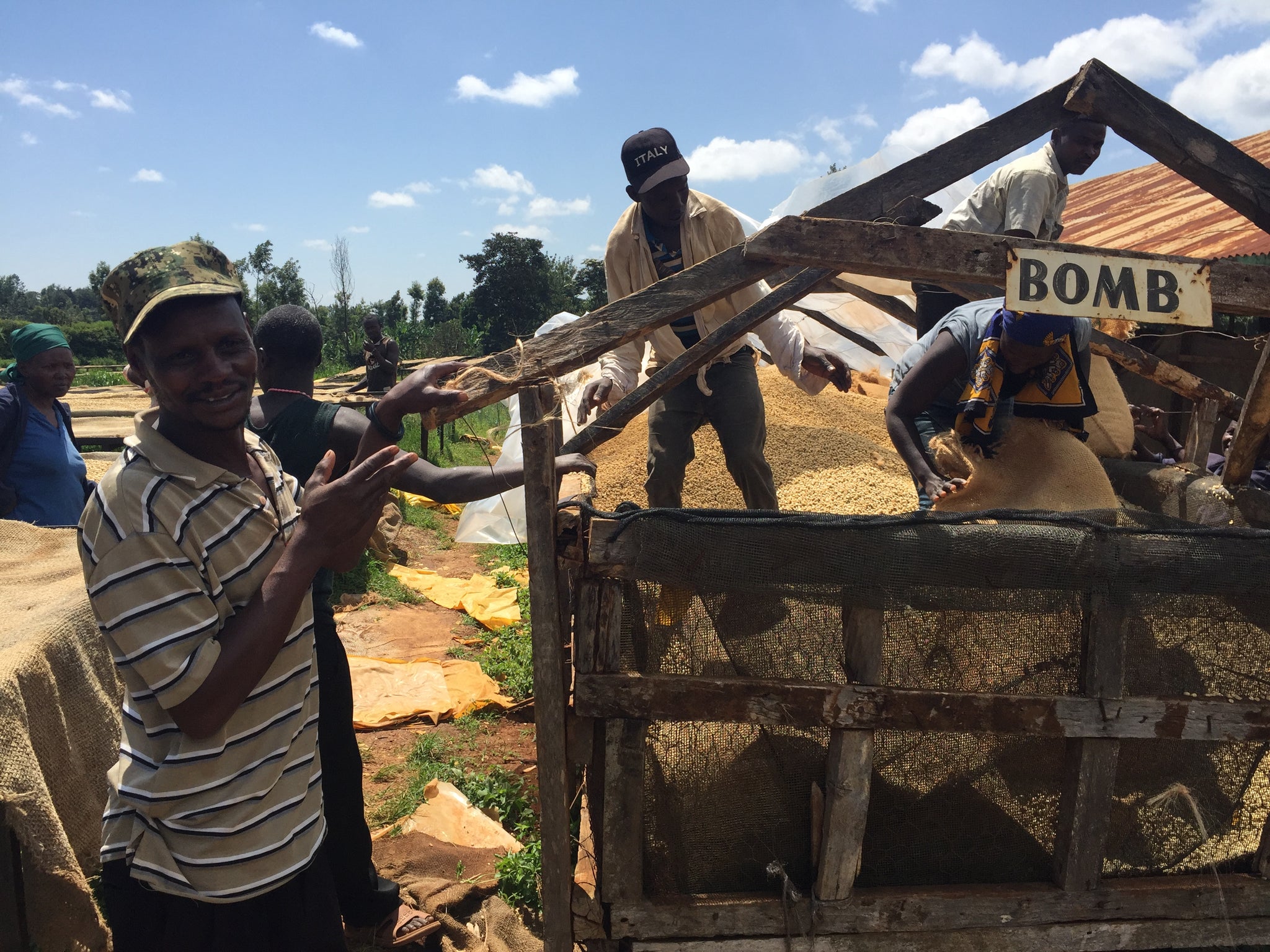
AA KII / KENYA
AA Kii / Kenya
Flavor Profile:
Red currant. Blood orange, Hibiscus, Brown sugar.
Fruity flavors of red currant and blood orange, hibiscus flavor, and a lingering hint of brown sugar.
Country of Origin: Kenya
Refinery: Kii Factory
Producers' association: Rung'eto Farmers Cooperative Society (hereinafter referred to as FCS)
Origin: Kirinyaga > Embu
Variety: SL28, SL34, Ruiri 11, and Batian
Refining method: Washed
Altitude: 1600 - 1800 masl
Harvest time: 2024
This year, I visited a supplier in Kenya in late February and did cuppings for purchasing coffee. This year, I was once again blessed with the opportunity to encounter many different coffees and taste hundreds of cups.
Our visit came just after the rules for distributing coffee in Kenya had changed, and while people in the supply chain were anxious but hopeful, they were trying to adapt to the new rules. In the midst of all this, we focused on finding high-quality coffee.
We visited Kenya in late February, which was the peak buying season after the main crop was harvested and processed. We have always felt that Kii Factory's coffee is of high quality, but this year it especially stood out on the cupping table.

This coffee is produced at the Kii Factory, part of the Lungeto Farmers Cooperative in central Kenya. Kii is one of three wet mills managed by the Lungeto FCS in Kirinyaga and is Fairtrade certified.
Lungeto FCS was formed by the merger of three factories: Kiangoi, Karimikui and Kii. The chairman of the association has implemented quality-oriented processes in all Lungeto FCS factories. For example, tiles were installed in all washing channels and fermentation tanks. In addition, water used in processing is also reused. Lungeto FCS farmers grow crops on the slopes of Mount Kenya, which is known for producing rich, complex and flavorful coffee.

Most Kenyan coffee is processed using a washed processing method. The coffee cherries are carefully hand-picked and delivered directly to a wet mill or collection point, where they are transferred to sorting mats or tables to remove unripe and damaged cherries. They are then weighed and processed further using the washed processing method.

First, the coffee cherries are placed in a tank of water to remove any unripe cherries that float to the top. A disc pulper is then used to remove the pulp, leaving the parchment that protects the green coffee beans. After depulping, the cherries are sorted by weight using water to separate the high-quality, dense beans from the lighter, lesser quality beans.
The beans are then left to dry ferment overnight to break down and wash away the sugars (mucilage) that are attached to the surface of the parchment. They are then further sorted using a water channel (heavier beans that sink to the bottom are considered to be higher quality, sweeter beans), and soaked in clean water for 24 hours. This process is said to enhance the beans' proteins and amino acids, resulting in greater acidity complexity and clarity in the cup.

After steeping, the coffee is spread on raised drying beds (also called African beds) and constantly stirred to ensure even drying, during which any defective beans are identified and removed. Time on the drying beds varies depending on the climate, ambient temperature and throughput, and can take 1-3 weeks to reach the target moisture content of 11-12%.

Farmers are free to choose which factory to deliver their cherries to, as there are often multiple options in their area. In Kenya's traditional auction system, quality is paramount, and higher quality coffee commands a higher price. Factories that produce higher quality coffee attract more farmers, as they often receive up to 90% of the sale price as a second payment after deducting marketing and preparation costs.
Transparency is a key feature of the Kenyan system, with everything clearly separated into small lots and different grades. Farmers know exactly what part of the sale price goes back to the cooperative after processing costs. Many cooperatives and factories compete to offer farmers the best returns, and some can refund up to 90% of the sale price.



